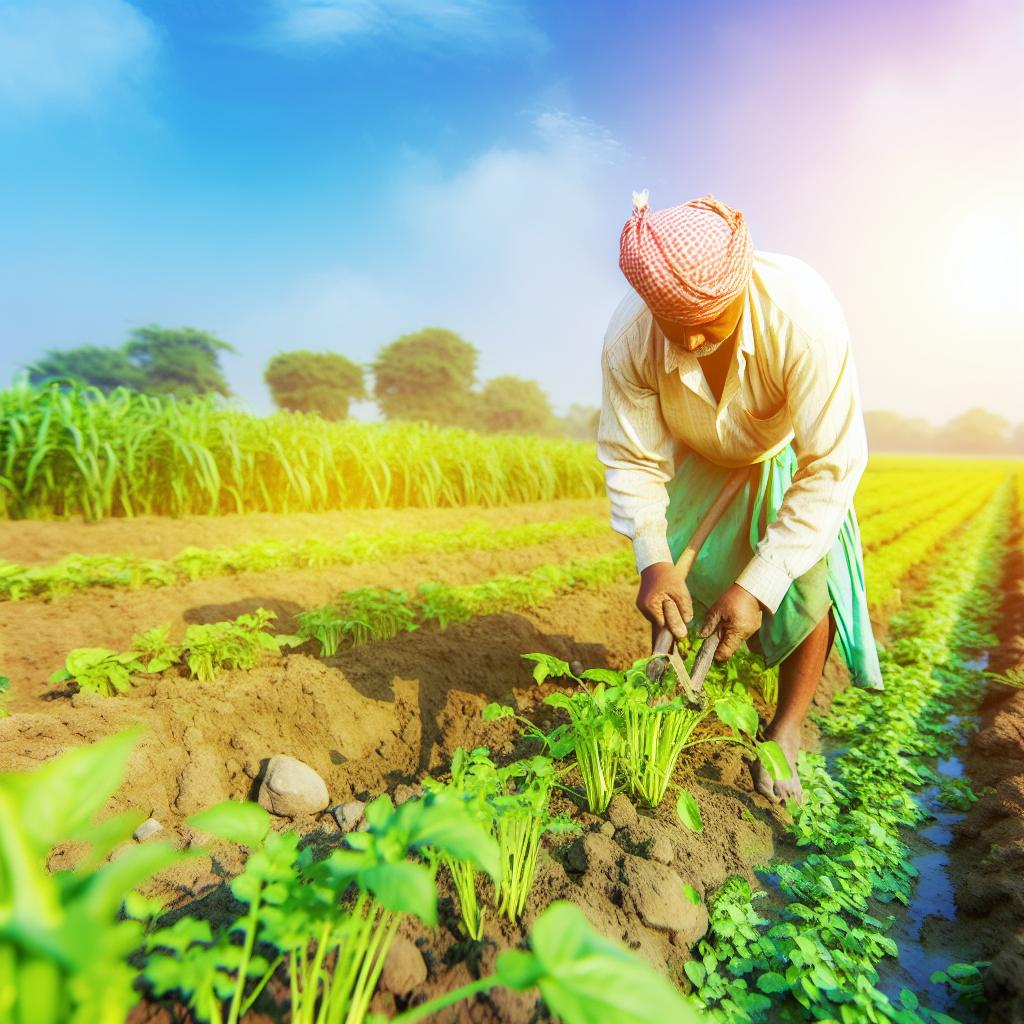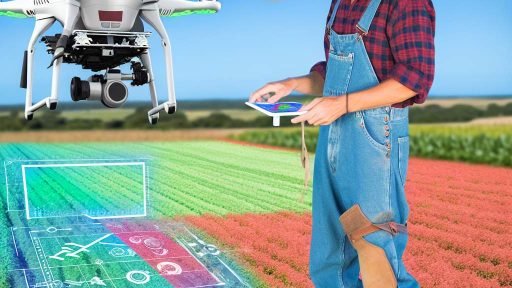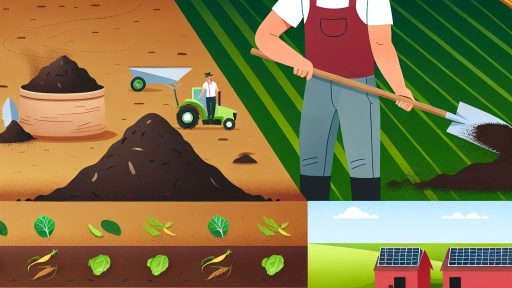Introduction to Farmland Investments and Resilient Crops
Investing in farmland has become increasingly popular in recent years.
This trend reflects a growing interest in sustainable agriculture practices.
Resilient crops play a significant role in the future of farmland investments.
Farmers are now focusing on crops that can withstand climate stressors.
These stressors include extreme weather, pests, and diseases.
By using resilient crops, farmers can ensure stable yields.
Stable yields lead to reliable returns for investors.
Moreover, the demand for locally grown produce continues to rise.
This growing demand encourages investments in farmland with resilient crops.
Investors are looking for sustainable ways to allocate funds effectively.
Resilient crops also promote environmental sustainability.
This promotes a positive impact on ecosystems and soil health.
Thus, farmland investments align with broader global goals.
These goals include food security and reducing greenhouse gas emissions.
The future of farmland investments looks promising.
Transform Your Agribusiness
Unlock your farm's potential with expert advice tailored to your needs. Get actionable steps that drive real results.
Get StartedResilient crops are key to navigating potential agricultural challenges.
Investors can play a critical role in this sustainable transition.
As agriculture evolves, opportunities for innovative investments will expand.
Embracing resilient crops leads to a stronger agricultural economy.
This approach ultimately benefits society as a whole.
Current Trends in Agricultural Investment
Shifts Towards Resilience
Today, agriculture faces numerous challenges due to climate change.
Investors recognize the need for resilient crop varieties.
These varieties are better suited to withstand harsh conditions.
As a result, farmers are increasingly adopting sustainable practices.
Moreover, consumers are becoming more aware of food origins.
This trend drives demand for environmentally friendly products.
Increased Focus on Sustainability
Sustainability is becoming a critical factor in agricultural investments.
Investors seek out farms that employ eco-friendly techniques.
For instance, regenerative agriculture improves soil health.
This approach enhances crop resilience and yields over time.
Additionally, it promotes biodiversity and ecological balance.
Technological Advancements
Technology is transforming the agricultural landscape.
Precision farming utilizes data to optimize resource use.
Drones and sensors help monitor crop health efficiently.
This technology reduces waste and increases productivity.
Furthermore, biotech innovations are creating resilient crops.
Policy and Economic Influences
Government policies are increasingly emphasizing sustainable agriculture.
Subsidies and incentives support farmers adopting resilient practices.
Also, international trade agreements are shifting towards eco-friendly standards.
Showcase Your Farming Business
Publish your professional farming services profile on our blog for a one-time fee of $200 and reach a dedicated audience of farmers and agribusiness owners.
Publish Your ProfileThese changes impact investment strategies across the agricultural sector.
Opportunities in Diverse Agricultural Practices
Diversification is a strategy gaining traction among investors.
Incorporating various crops reduces risks associated with market fluctuations.
Likewise, it allows for better resource management.
Investors are now focusing on localized food systems.
This trend supports community resilience and food security.
Defining Resilient Crops
Characteristics of Resilient Crops
Resilient crops exhibit adaptability to changing environmental conditions.
These plants thrive under stress from drought, pests, or diseases.
Moreover, they often showcase enhanced nutrient efficiency.
Another important trait is their ability to maintain yield stability.
Farmers benefit from these crops, as they reduce extensive input usage.
Ultimately, resilient crops support sustainable agricultural practices.
Importance of Resilient Crops
Resilient crops play a crucial role in food security.
They help mitigate risks associated with climate change.
Furthermore, these crops contribute to the economic stability of farming communities.
By reducing crop losses, farmers can achieve better income stability.
Additionally, resilient crops lessen the dependency on chemical treatments.
This shift promotes healthier ecosystems and biodiversity.
Examples of Resilient Crops
Certain varieties of sorghum are exceptionally drought-resistant.
Other examples include legumes, which improve soil health through nitrogen fixation.
Rice strains have been developed to withstand flooding conditions.
Furthermore, some genetically modified crops exhibit resistance to pests and diseases.
These innovations represent a significant advancement in agricultural science.
Gain More Insights: Understanding Zoning Laws for Agricultural Land Amid Climate Change
The Role of Technology in Enhancing Crop Resilience
Introduction to Crop Resilience
Crop resilience refers to a plant’s ability to thrive despite environmental stressors.
This concept is crucial in the face of climate change.
Farmers must adapt to unpredictable weather patterns and increased pests.
Advancements in Agricultural Technology
Technology plays a pivotal role in improving crop resilience.
Precision agriculture utilizes data to enhance farming practices.
This method allows farmers to optimize inputs and monitor crop health.
Moreover, drones and satellite imagery provide crucial insights into crop performance.
Such innovations increase yield while minimizing resource use.
Genetic Modification and Crop Varieties
Genetic engineering creates crops with enhanced resistance to diseases and pests.
Scientists develop varieties that can withstand extreme weather conditions.
These advancements significantly reduce crop loss during adverse events.
Farmers can choose resilient varieties tailored to their regional climates.
Data Analytics in Agriculture
Data analytics allows farmers to predict weather patterns more accurately.
Advanced algorithms analyze historical data to forecast potential risks.
This information helps in planning planting and harvesting schedules.
Furthermore, analytics can guide irrigation practices to optimize water usage.
Showcase Your Farming Business
Publish your professional farming services profile on our blog for a one-time fee of $200 and reach a dedicated audience of farmers and agribusiness owners.
Publish Your ProfileRole of Sustainable Practices
Sustainable farming practices enhance resilience alongside technological advancements.
Crop rotation and cover cropping improve soil health for increased yield.
These methods also reduce dependence on chemical fertilizers.
Integrating technology and sustainability can lead to more resilient agricultural systems.
Investing in Technology for Future Farms
Investors should consider the technological advancements in agriculture.
Supporting innovative companies can lead to significant returns in farmland investments.
Understanding these technologies will be key for future harvests.
As Ryan Fields, an agricultural analyst, states, “Investing in this area is both profitable and essential.”
Uncover the Details: Understanding Temperature Trends and Their Effect on Farmland
Economic Benefits of Investing in Resilient Agriculture
Increased Yield Potential
Investing in resilient crops enhances agricultural productivity.
These crops are better suited to withstand climate challenges.
For instance, drought-resistant varieties can thrive in arid conditions.
This leads to a more stable yield over time.
Consequently, farmers see an increase in profit margins.
Lower Input Costs
Resilient crops often require fewer chemical inputs.
Therefore, farmers save money on pesticides and fertilizers.
Additionally, these crops can reduce water usage significantly.
These savings contribute to overall cost efficiency.
Farmers who invest in these solutions often report improved financial health.
Market Demand and Consumer Preferences
Today’s consumers favor sustainably grown produce.
Investing in resilient crops meets this growing market demand.
These products can command higher prices at the market.
Moreover, consumers appreciate the reduced environmental impact.
This alignment with consumer values encourages sales growth.
Government Support and Incentives
Many governments promote resilient agricultural methods through subsidies.
These incentives support farmers transitioning to sustainable practices.
Investors often find financial backing for eco-friendly projects.
As a result, the business environment becomes more favorable for farmers.
Government initiatives further boost long-term sustainability.
Risk Mitigation and Long-Term Viability
Investing in resilient crops helps mitigate risks associated with climate change.
These crops adapt better to unpredictable weather patterns.
Thus, they provide a safety net for farmers’ livelihoods.
The long-term viability of farms increases significantly.
Investors appreciate the stability provided by resilient agricultural practices.
Delve into the Subject: Soil Erosion Control Methods for Sustainable Real Estate Development
Environmental Impacts of Resilient Crop Practices
Enhancing Soil Health
Resilient crop practices significantly improve soil health.
These methods reduce soil erosion and increase organic matter.
Moreover, they enhance microbe diversity in the soil.
Healthy soil fosters better water retention and nutrient availability.
Reducing Chemical Inputs
Adopting resilient crops decreases the need for chemical fertilizers.
Showcase Your Farming Business
Publish your professional farming services profile on our blog for a one-time fee of $200 and reach a dedicated audience of farmers and agribusiness owners.
Publish Your ProfileFarmers can use cover crops to naturally enrich the soil.
This practice minimizes pollution from runoff into waterways.
As a result, it promotes cleaner and healthier ecosystems.
Conserving Water Resources
Resilient crops are often more drought-resistant.
These crops require less irrigation, thus conserving water.
Additionally, they help maintain groundwater levels.
Efficient water use improves the sustainability of farming practices.
Mitigating Climate Change Effects
Resilient agricultural practices can help combat climate change.
These methods enable farmers to adapt to shifting weather patterns.
By sequestering carbon in the soil, they reduce greenhouse gases.
Ultimately, this contributes to a healthier environment for all.
Promoting Biodiversity
Resilient crops support a diverse range of species.
Crop rotation and intercropping practices enhance biodiversity.
This diversity helps ecosystems remain robust and adaptable.
Consequently, it leads to healthier agricultural landscapes.
Discover More: Best Irrigation Practices for Reducing Water Waste in Farming

Case Studies: Successful Farmland Investments in Resilient Crops
Introduction to Resilient Crops
Resilient crops adapt effectively to climate challenges.
These crops require less water and withstand pests better.
Investors increasingly seek such sustainable agricultural options.
The Rise of Drought-Resistant Varieties
In recent years, drought-resistant crops have gained popularity.
For example, the use of drought-tolerant maize has flourished in California.
Farmers reported higher yields despite low rainfall.
Investors like GreenFields Holdings have successfully funded such initiatives.
Case Study: GreenFields Holdings
GreenFields Holdings invested significantly in drought-resistant maize production.
This investment resulted in a 30% increase in profits over two years.
Additionally, the approach enhanced the farm’s resilience to climate variability.
Consumers preferred produce with sustainable farming practices.
Perennial Crops and Their Benefits
Perennial crops require less soil disturbance than annuals.
They contribute to soil health and reduce the need for fertilizers.
Farmers benefit from reduced planting costs and increased yields.
Tommy’s Organic Farms exemplified success with perennial wheat.
Case Study: Tommy’s Organic Farms
Tommy’s Organic Farms transitioned to perennial wheat in 2021.
This shift resulted in a 40% decrease in soil erosion.
Moreover, their profits increased by 25% due to lower input costs.
Consumers responded positively to the environmentally friendly approach.
Investments in Integrated Pest Management
Integrated Pest Management (IPM) reduces reliance on chemical pesticides.
It promotes biological pest control and enhances crop resilience.
Many investors now prioritize IPM for long-term sustainability.
Globally, companies have begun to fund IPM training for farmers.
Case Study: EcoGrow Investments
EcoGrow Investments supported an IPM initiative in Florida.
Showcase Your Farming Business
Publish your professional farming services profile on our blog for a one-time fee of $200 and reach a dedicated audience of farmers and agribusiness owners.
Publish Your ProfileThey trained 500 farmers across various crop types.
This investment decreased pesticide use by 50% and increased crop yields by 15%.
Farmers reported improved soil health and biodiversity as a result.
The Role of Technology in Crop Resilience
Technology plays a critical role in improving crop resilience.
Precision agriculture techniques optimize resource use and efficiency.
Investors increasingly support tech-driven sustainable agricultural practices.
Innovative tools help farmers manage risks and enhance productivity.
Case Study: AgriTech Innovations
AgriTech Innovations developed a soil sensor technology.
This tool provides real-time data on moisture levels and nutrient needs.
Farmers implementing this technology reported higher efficiency rates.
AgriTech’s impact led to increased investor interest and funding.
Investment Trends in Sustainable Agriculture
Investing in resilient crops remains a promising strategy.
Higher yields and sustainability drive market interest.
Forward-thinking investors will capitalize on evolving agricultural practices.
Future Challenges and Opportunities for Farmland Investors
Identifying Key Challenges
Climate change presents significant challenges for agricultural productivity.
Investors must understand the ongoing impact of shifting weather patterns.
Additionally, water scarcity issues threaten crop viability across various regions.
Soil degradation remains a concerning problem for farmland health.
Pest and disease outbreaks could increase due to changing climates.
Lastly, market volatility in agricultural commodities poses financial risks.
Exploring Opportunities in Resilient Crops
Investors can pivot towards resilient crop varieties for better returns.
These crops are designed to withstand environmental stressors.
Additionally, they often require fewer resources to grow.
Investing in biotechnology holds promise for enhancing crop resilience.
Research on climate-adapted crops is expanding rapidly.
Consequently, new markets and prospects are emerging for innovative products.
Engaging with Sustainable Practices
Adopting sustainable farming methods can increase farmland value.
Practices like crop rotation improve soil fertility over time.
Moreover, organic farming attracts premium pricing in various markets.
Investors should explore partnerships with sustainable agricultural initiatives.
Utilizing environmental, social, and governance (ESG) criteria can guide investments.
This approach not only enhances returns but also promotes responsible farming.
Leveraging Technology in Agriculture
Technology plays a critical role in modern agriculture.
Precision farming techniques can optimize yields and resource use.
Investors can benefit from advancements in agricultural technologies.
Data analytics and farm management software improve decision-making.
Additionally, drones and sensors provide real-time monitoring of crop health.
Investing in ag-tech startups could yield high returns in the coming years.
Building Stronger Community Connections
Community-supported agriculture (CSA) programs enhance local engagement.
Investors can foster relationships with farmers and consumers alike.
Showcase Your Farming Business
Publish your professional farming services profile on our blog for a one-time fee of $200 and reach a dedicated audience of farmers and agribusiness owners.
Publish Your ProfileMoreover, educating consumers about sustainable farming can boost demand.
Strengthening local food systems can lead to higher profitability.
Collaboration with local governments can support agricultural initiatives.
This ensures that investments remain viable and community-focused.
Strategies for Investors to Adapt to a Resilient Future
Embrace Sustainable Practices
Investors should prioritize sustainable farming techniques.
These practices will enhance the resilience of crops.
Additionally, sustainable methods improve long-term profitability.
Investing in organic farming can reduce reliance on chemical inputs.
Moreover, sustainable practices help mitigate climate risks.
Diversify Crop Investments
Diversification can be a key strategy for investors.
Invest in a variety of crops to spread risk.
Crops like quinoa, lentils, and millet show resilience to climate change.
Furthermore, investing in different geographical areas reduces vulnerability.
Diverse portfolios can safeguard against market fluctuations.
Utilize Technology and Innovation
Incorporating technology is essential in modern agriculture.
Use precision farming to optimize yields and resource use.
Investors should consider vertical farming and hydroponics.
These technologies maximize land use and minimize water consumption.
Also, investing in agri-tech startups can yield significant returns.
Engage with Local Communities
Building relationships with local farming communities is crucial.
Collaborate on projects that enhance food security.
Engaging with local farmers helps understand market needs.
Support community initiatives to improve resilience and adaptation.
Additionally, local partnerships can strengthen market access.
Monitor Policy Changes and Trends
Awareness of agricultural policies is vital for successful investments.
Let changes in trade policies guide investment decisions.
Stay informed about subsidies and incentives for sustainable practices.
Furthermore, understand consumer demand trends for resilient crops.
Proactive monitoring allows investors to stay ahead of the market.
Additional Resources
Statements of Support for the Agriculture Resilience Act | U.S. …
Starbucks Expands Global Effort to Protect Future of Coffee with Two …




